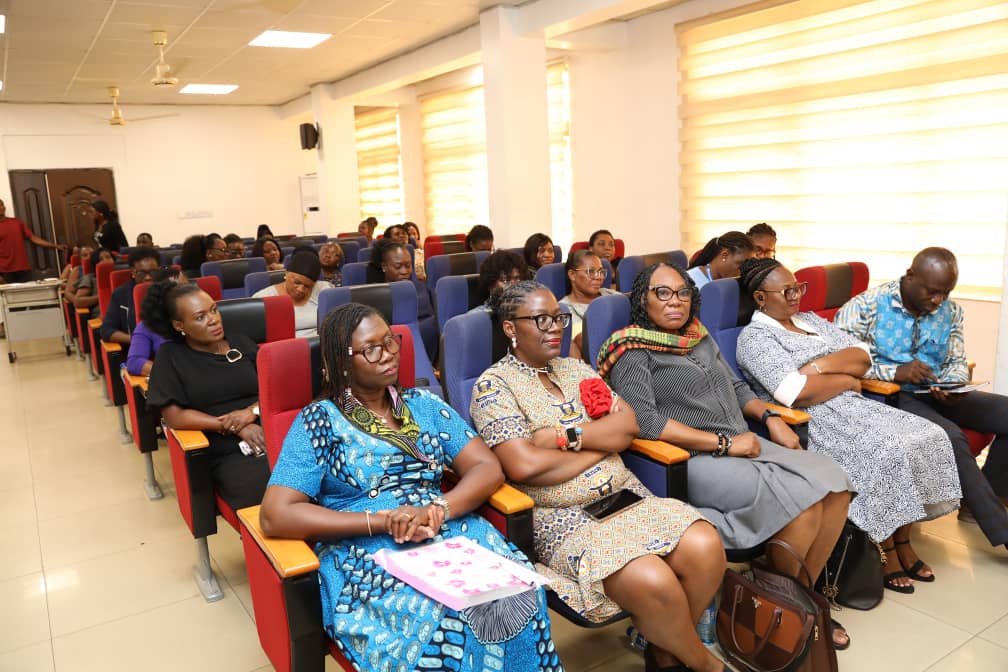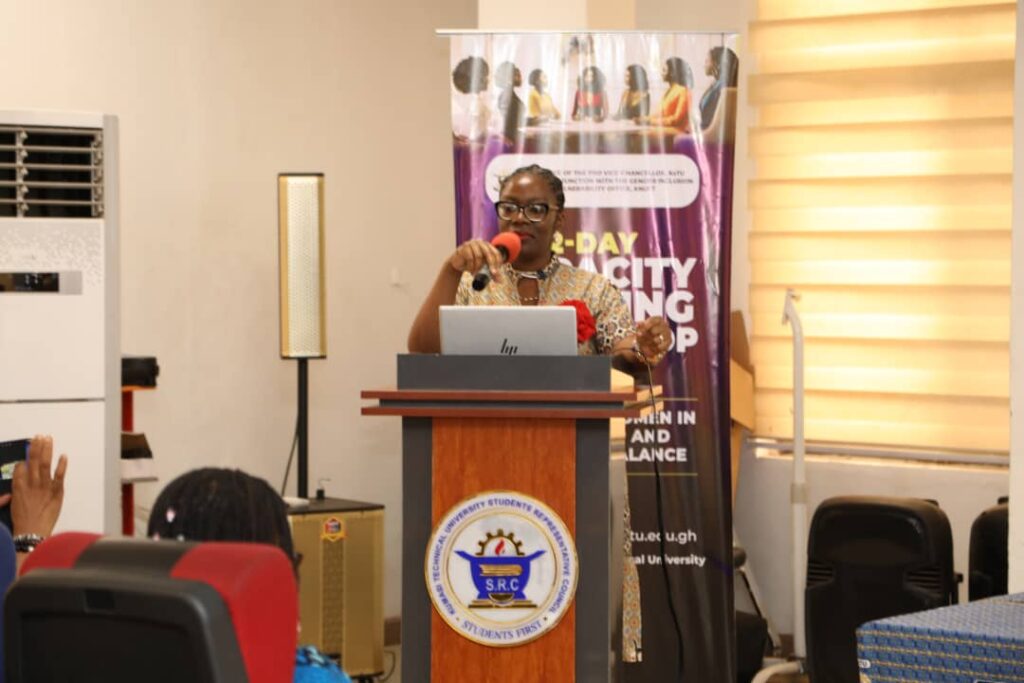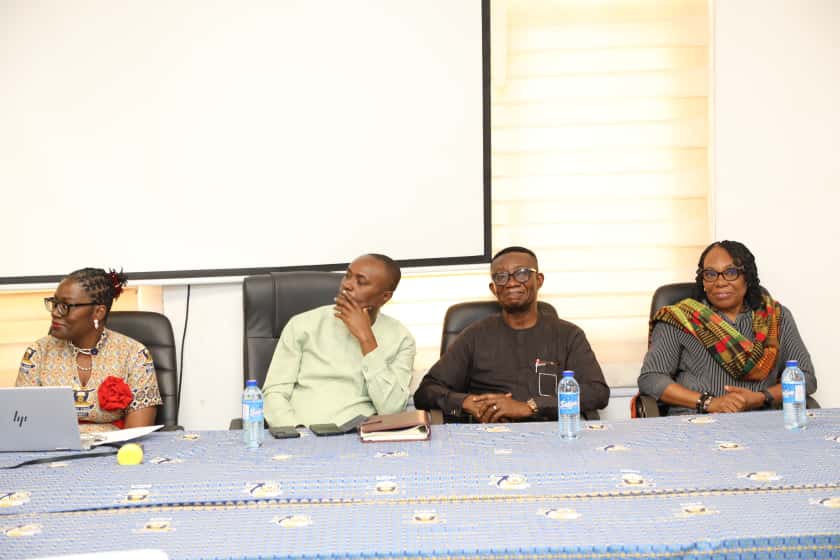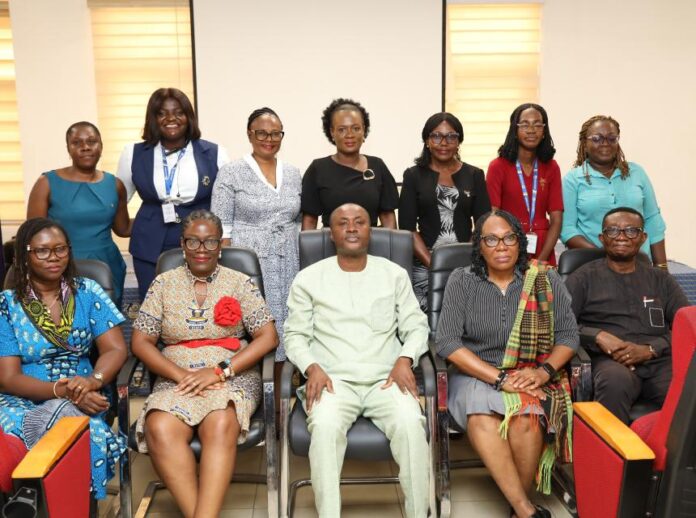Kumasi Technical University (KsTU), through the Office of the Pro Vice-Chancellor and in collaboration with the Gender Inclusion and Vulnerability Office of KNUST, recently hosted a transformative two-day workshop focused on advancing women in leadership and promoting work–life balance.
The event, held on 13th and 14th November 2025 at the SRC Conference Room, brought together female teaching and non-teaching staff for intensive training, mentorship, and career development engagement.

The Vice-Chancellor of KsTU, Professor Gabriel Dwomoh, opened the workshop by urging women to prepare for leadership roles across academia and administration. He emphasized that meaningful representation requires intentional learning, confidence, and readiness, and encouraged participants to embrace continuous development, highlighting the vital role women play in shaping the future of tertiary education.
The Registrar, Mr. Ebenezer Boakye, praised the initiative as a key step in building a motivated, high-performing workforce. He noted that empowering women enhances institutional growth and national progress, urging participants to apply what they learn to increase their visibility and contributions within KsTU.
The workshop also welcomed two distinguished KNUST academics—Professor (Mrs.) Ibok Oduro, Professor of Postharvest Technology at the Department of Food Science and Technology, and Professor (Mrs.) Mercy Badu, Associate Professor in the Department of Chemistry and Head of the Gender Office. Their participation reaffirmed the commitment of tertiary institutions to promote gender inclusivity, mentorship, and professional advancement.
A highlight of Day One was the keynote address by Ing. Professor (Mrs.) Abena Agyeiwaa Obiri-Yeboah. She challenged participants to prepare themselves for leadership roles, stressing that the provisions of the Affirmative Action Bill would be ineffective if qualified women were not available to fill reserved positions. She encouraged staff to pursue higher academic qualifications, improve research output, collaborate on publications, and set clear career goals, emphasizing that leadership becomes attainable when preparation meets opportunity.

Day One also featured discussions on work–life balance, identity, values, and motivation. Professor Ibok Oduro highlighted leadership as a complementary effort between men and women, while Professor Mercy Badu emphasized the importance of women building networks and leveraging gender advocacy structures across universities.
Day Two expanded on these sessions with impactful presentations. The Deputy Registrar, Dr. Jenkins, spoke on “Policy Literacy: Empowering Staff Through Policy,” explaining the importance of understanding institutional policies for career advancement and effective decision-making. He encouraged staff to familiarize themselves with university regulations, promotion requirements, and administrative procedures to navigate the system confidently.

Professor Ibok Oduro also presented on “Navigating the Career Space with a Difficult Spouse,” addressing the challenges many women face in balancing ambition, family expectations, and emotional support. She urged participants to communicate openly, negotiate responsibilities, and maintain self-awareness to thrive.
A vibrant panel discussion was another highlight, where panellists shared personal experiences, challenges, and strategies for rising through leadership positions while maintaining work–life balance. The interactive session prompted honest reflections and engagement from participants.
The programme concluded with a presentation by Mrs. Ama Kyerewaa Boakye-Nti on “Personal and Institutional Action Planning.” She guided participants through practical steps for setting goals, developing action strategies, and aligning personal aspirations with institutional expectations, providing a clear roadmap for professional growth.
Participants described the workshop as empowering, engaging, and essential to their development. Many noted that the sessions deepened their understanding of leadership and provided practical skills they could apply immediately.
Through this initiative, KsTU has reaffirmed its commitment to building a supportive, gender-responsive academic community where women are equipped to lead, influence, and excel. The University plans to sustain such programmes to ensure women continue to receive guidance and support on their journey toward leadership and institutional excellence.
READ ALSO:



